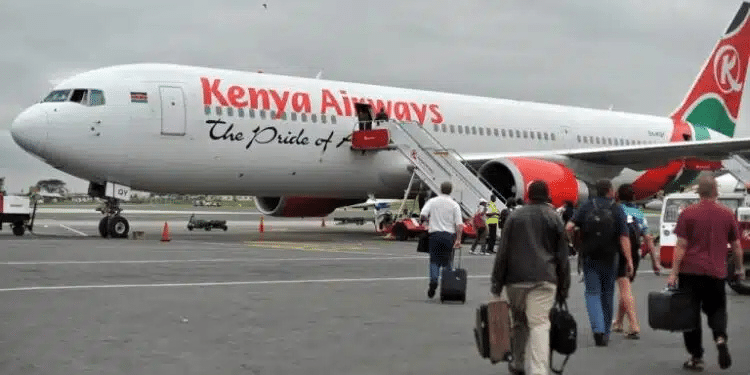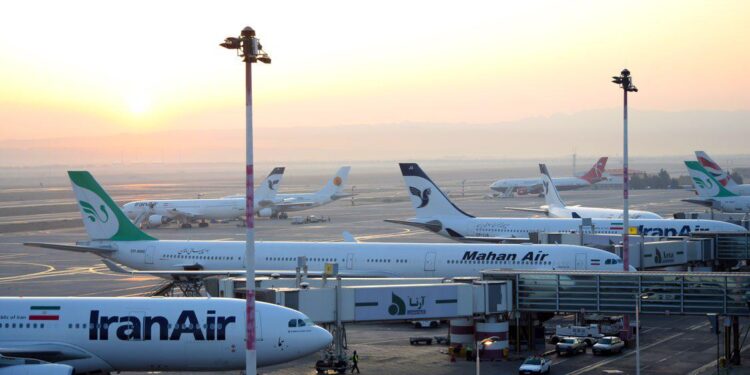Airports across Iran resumed operations on Monday, April 15 after a temporary suspension due to heightened tensions in the region.
The resumption comes after Iran launched its first-ever direct attack on Israeli territory late Saturday, April 13 utilizing drones and missiles in retaliation for an airstrike on Tehran’s consulate in Damascus on April 1, an incident widely attributed to Israel.
The official IRNA news agency confirmed that flights at Imam Khomeini International Airport in Tehran were back to normal as of 6:00 am (0230 GMT).
Additionally, domestic airports including Mehrabad in Tehran, Tabriz in the northwest, Mashhad in the northeast, and Shiraz in the south are all reported to be operating as scheduled.
“The domestic Mehrabad airport in Tehran and others across the country including Tabriz in the northwest, Mashhad in the northeast and Shiraz in the south are all “operating as scheduled,” read a statement from IRNA.

Several Airlines Suspend Flight Operations Due to Iran Attack
The Iranian attack, coupled with fears of potential Israeli reprisal, prompted several airlines to suspend flights to the region.
German airline Lufthansa has halted its flights to and from Iran, while others, such as Australian airline Qantas, have rerouted planes to avoid Iranian airspace.
The attack also had ripple effects on airspace management in the Middle East, with several countries including Jordan, Lebanon, and Iraq initially closing their airspace overnight from Saturday to Sunday.
Also Read: US to Convene G7 Meeting After Iran Attack on Israel
However, all of these nations have since reopened their airspace.
The situation remains tense as Israel Is yet to reveal its response to the Iranian attack even as speculation abounds regarding the nature of the country’s potential actions.
Global Reactions to Israel-Iran Aerial Attacks
International reactions to the incident have varied.
While some airlines have opted for caution by suspending flights or altering routes, others continue to operate as usual.
The recent escalation of tensions between Iran and Israel, marked by Iran’s first direct attack on Israeli territory from its soil over the weekend, had impacted air travel in one of the busiest regions globally.
The conflict forced airlines to make difficult decisions, including choosing lengthy detours for flights between major cities like London or Paris and destinations in the Persian Gulf or India.
As a result of the heightened military activity, several Middle Eastern countries, including Jordan, Iraq, and Lebanon, temporarily closed their airspace.
Iran’s use of drones and missiles in the attack prompted these nations to prioritize safety by restricting air traffic in the region.
Additionally, both Israel and Iran implemented restrictions on airline traffic, necessitating reroutes that extend flight times and increase fuel costs for airlines.
Also Read: Kenyan Students to Get Full Sponsorship to study in Iran
The closures and restrictions have created logistical challenges for airlines operating in the area, as they must navigate alternative flight paths to ensure the safety of passengers and crew.
These detours not only add time and expense but also disrupt flight schedules and logistics for airlines operating in the region.
Israel’s airspace had been reopened following an overnight attack by hundreds of Iranian missiles and drones as announced by the country’s airports authority.
As of 8:30 a.m. on Sunday, flights were permitted to resume, although flight schedules from Tel Aviv experienced delays.
Travelers were advised to check their flight times for any changes or delays.










































































